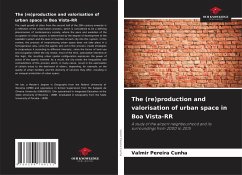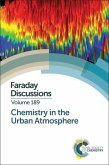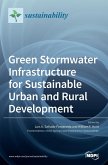The rapid growth of cities from the second half of the 20th century onwards is a reflection of the urbanisation process, which is considered to be a defining phenomenon of contemporary society, where the pace and evolution of the occupation of urban spaces is determined by the degree of development of the capitalist system and the level of insertion of each city into this system. In this context, the process of (re)producing urban space does not take place in a homogeneous way, since the agents who act in this process create strategies to (re)produce it according to different interests, since the forms of land use and occupation within the city reveal, most of the time, speculative interests.In this logic, the resulting urban spatial configuration expresses the power of action of the agents involved. As a result, the city shows the inequalities and contradictions of this process which, in many cases, result in the valorisation of certain areas to the detriment of others, depending, for example, on the quality of urban facilities and the diversity of services they offer, resulting in an unequal production of urban space.
Bitte wählen Sie Ihr Anliegen aus.
Rechnungen
Retourenschein anfordern
Bestellstatus
Storno








